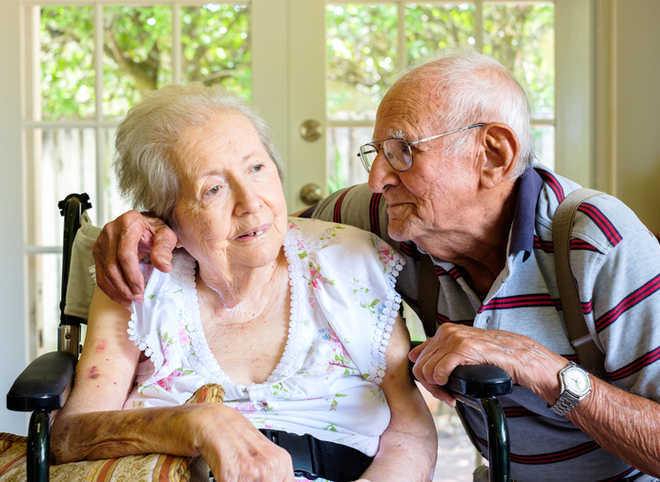
Photo for representational purpose only. Thinkstock
NEW YORK: Exercise can stop accumulation of a harmful protein which is believed to play a central role in the brain cell death associated with Parkinson’s disease, new research has found.
Engaging in exercise on a running wheel can stop the accumulation of the neuronal protein alpha-synuclein in brain cells, showed the study published in the journal PLOS ONE.
Parkinson’s disease causes progressive loss of muscle control, trembling, stiffness, slowness and impaired balance.
“Our experiments show that exercise can get to the heart of the problem in Parkinson’s disease,” said one of the researchers Curt Freed, Professor at University of Colorado Anschutz Medical Campus in the US.
“People with Parkinson’s who exercise are likely able to keep their brain cells from dying,” Freed added.
The experiment was conducted in a mouse model of Parkinson’s, and the mice in the study, like humans, started to get Parkinson’s symptoms in mid-life. At 12 months of age, running wheels were put in their cages.
The researcehrs found that in the running mice, exercise increased brain and muscle expression of a key protective gene called DJ-1, compared to control transgenic animals which had locked running wheels.
Those rare humans born with a mutation in their DJ-1 gene are guaranteed to get severe Parkinson’s at a relatively young age.
The researchers tested mice that were missing the DJ-1 gene and discovered that their ability to run had severely declined, suggesting that the DJ-1 protein is required for normal movement.
“Our results indicate that exercise may slow the progression of Parkinson’s disease by turning on the protective gene DJ-1 and thereby preventing abnormal protein accumulation in brain,” Freed said.
He explained that his animal experiments had very real implications for humans.
Parkinson’s is a disease caused by the death of brain cells that make a critical chemical called dopamine. Without dopamine, voluntary movement is impossible. IANS



























